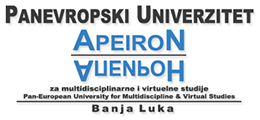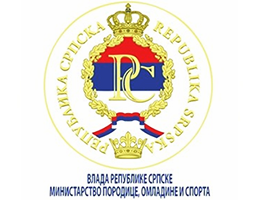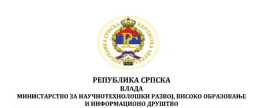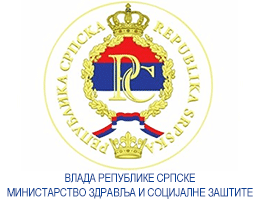THE RELATION BETWEEN DISRUPTIVE FACTORS AND SUCCES IN SAILING
Volume 15, Issue V (2025)
Volume 15, Issue V (2025)
THE RELATION BETWEEN DISRUPTIVE FACTORS AND SUCCES IN SAILING
Abstract:
There are many factors that affect the success of sailors. Psychiological factors are some of the unavoidable ones that are connected to the sports performance. One of the key factors is anxiety which is changing according to the ex- perience and the situation the sportsmen find themselves in. The goal of this paper was to determine the effect of disruptive factors on the success in sailing conducted on 29 students of Kinesiology faculty in Zagreb. In the research wave height, visibility, wind strength and anxiety level were measured and analysed. Anxiety was analysed through multidimensional ap- proach to anxiety as a temporary state of the examinee, and the anxiety as a personality trait. Every examinee has filled out the Endler EMAS-T questionnaire which evaluates the anxiety as a personality trait, while everyday they were filling out EMAS-S questionnaire prior to every regatta, so that current anxiety could be compared to the regatta results. Statistically significant correlation between anxiety and success in sailing was proved in 2 out of 8 regattas, so it can hardly be said that the hypothesis was proved. Statistical significance was proved in lessening of the somatic anxiety level of sailors in correla- tion with the number of days and the exposure to the stressor. It can be concluded that the level of anxiety is changing the more days passes and the more the sailor is exposed to the stressor and that some inidcations of the correlation of anxiety and the success in regatta sailing exist.
Keywords:
anxiety, education, regatta, students, water sports.
Full Text:
References:
Caraballo, I., González-Montesinos, J. L., & Alías, A. (2019). Performance factors in dinghy sailing: Laser class. International Journal of Environmental Research and Public Health, 16(24), 4920.
Cox, R. H. (1998). Sports Psychology: Concepts and Applications. McGraw-Hill Education.
Dinter, S., Detel, D., & Batičić, L. (2021). Biokemijski odgovor na anksioznost uzrokovanu sportskim aktivnostima. Medicina Fluminensis: Medicina Fluminensis, 57(1), 35-46.
Hanton S, Mellalieu S, Williams JM. Understanding and managing stress in sport. In: Williams JM, Krane V, editors. Applied Sport Psychol- ogy: Personal Growth to Peak Performance. 7th ed. New York, NY: McGrawHill; 2015:207–239.
Iličić, J., Prlenda, N., Maglov, M. (2022). Utjecaj različitih faktora na uspješnost u jedrenju. U L. Milanović, V. Wertheimer, I. Jukić, I. Krakan (eds), Kondicijska priprema sportaša (pg. 372-377). Zagreb: Faculty of Kinesiology of University of Zagreb.[in Croatian]
Kos, Z. (2018) The role of physical activity in managing stress. Sestrinski glasnik, vol.23, 33.
Manzanare Serrano, A., Antúnez, R. M., Segado Segado, F. (2017) Cisual Search Strategy During Regatta Starts in a Sailing Simulation. Motor Control, DOI: 10.1123/mc.2015-0092.
Maynard, I. (2006). The sport psychology of Olympic sailing and windsurfing. The sport psychologist’s handbook: A guide for sport-specific performance enhancement, 457-477.
Neville, V., Pain, M. T., & Folland, J. P. (2009). Aerobic power and peak power of elite America’s Cup sailors. European Journal of Applied Physiology, 106(1), 149-157.
Oreb, G., Prlenda, N., & Kolega, J. (2013). The influence of morphological characteristics on effectiveness of teaching sailing. Sport Science, 6(1).
Ost, L., Jerremalm, A. & Johanson, J. (1988). Individual response patterns and the effects of different behavioural methods in the treatment of social phobia. Scandinavian Journal of Behavioural Research and Therapy, 19, 1–16.
Sjøgaard, G., Inglés, E., Narici, M. (2015) Science in sailing: Interdisciplinary perspectives in optimiting sailing performance. European Jo- urnal of Sport Science, vol. 15, 191-194.
Smith, R.E. (1980). A cognitive affective approach to stress management for athletes. In C.A. Nedeau, W.R. Halliwell, K.M. Newell and G.C. Roberts (eds), Psychology of Motor Behaviour and Sport (pp. 141–167). Champaign, IL: Human Kinetics.
Spielberger, C. D. (1971) Trait-state anxiety and motor behavior. Journal of Motor Behaviar, vol. 3, 265-279.
Suinn, R.M. (1987). Behavioural approaches to stress management in sports. In J.R. May & M.J. Asken (eds). Sport Psychology. New York: PMA.
Tan, B., Aziz, A. R., Spurway, N. C., Toh, C., Mackie, H., Xie, W., ... & Teh, K. C. (2006). Indicators of maximal hiking performance in Laser sailors. European journal of applied physiology, 98(2), 169-176.
Weinberg RS, Gould D. Foundations of Sport and Exercise Psychology. 6th ed. Champaign, IL: Human Kinetics; 2015.






